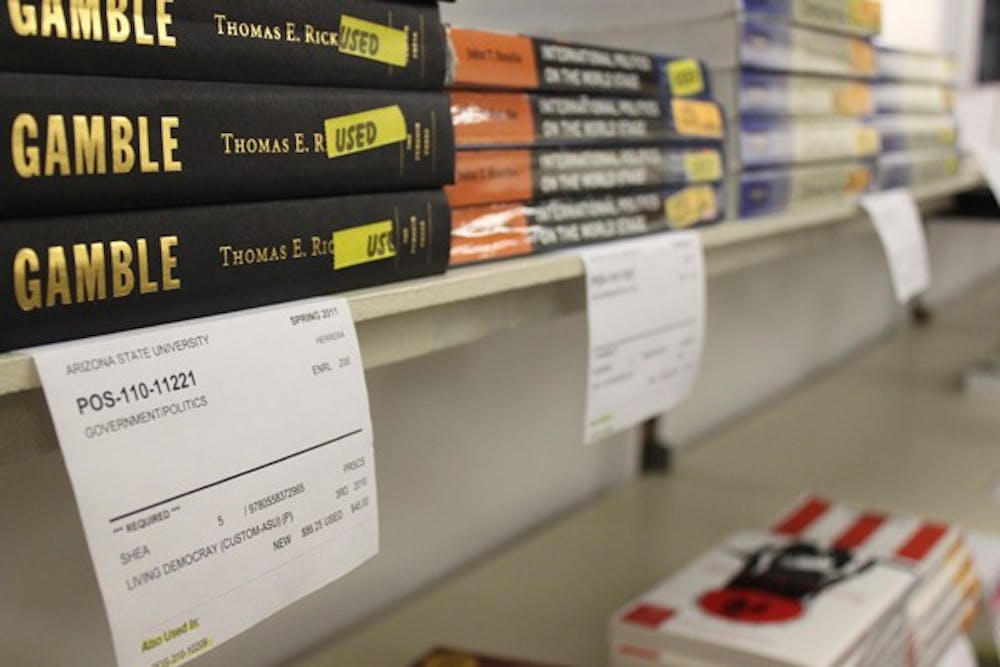Results from a survey conducted by the Arizona Students’ Association were released Wednesday morning, revealing that 75 percent of students polled said they have decided not to buy a textbook for a class because it was too expensive.
The ASA held a press conference in front of the bookstore on ASU’s Tempe campus to release information from the study to raise awareness of how rising textbook prices are affecting students.
ASA is a student group that works to make sure education in Arizona is affordable for students.
The survey, which is the first of its kind from ASA, was taken at the beginning of this semester and surveyed 430 students. The group conducted the survey by members setting up tables outside of the Memorial Union for several weeks and asking students to take the survey.
Other results of the survey showed that 85 percent of students pay for textbooks out of pocket, and 23 percent of the students would drop a class if the books were too expensive.
The survey also reported that students pay an average of $380 on textbooks each semester.
Communications junior Matt Abbott said he would never go as far as dropping a class because the books are too expensive, but he often chooses to find alternatives to buying textbooks, such as renting them through Chegg.com.
He added that his biggest frustration with textbooks is teachers telling the students they will need a textbook for class and then the book is never used.
“I usually will wait to see if we’re actually going to use the book, and if not, I’ll just return it to the bookstore,” Abbott said.
Moriah Costa, a political science freshman and the textbook coordinator for ASA, said ASA held the press conference not only to reveal the results of their survey, but also to make students and faculty aware of how publishing companies are cheating people out of their money.
Another result of the survey found that 85 percent of students said new editions affect the price of textbooks and that these new editions often have very few changes to them.
“Oftentimes, the publishing companies will reprint new editions of the same book because they won’t make money off of old editions of books being resold,” Costa said.
She said the group’s main goal is to reach teachers in order to make them aware of the fact that publishing companies are doing this.
ASA’s research has shown that many publishers do not tell faculty the retail price of textbooks, so teachers are unaware of how much students are spending.
“Teachers often don’t realize that new editions of books often contain the same information,” she said. “By making them aware of how much the prices affect students, we hope that they will start paying attention and look for alternatives.”
Exhibit design and development professor Judy Newland said she does look into the prices of textbooks because she cares about the finances of her students.
“Some teachers aren’t aware of the prices,” she said. “But most of the professors I work with try to make sure books are affordable.”
Costa said to specifically target teachers, ASA plans to present its survey information to faculty members to inform them of the unfair prices.
She hopes that if the teachers are made aware of this, they will pay more attention to changes in new editions.
Secondary education junior Eric Sanchez said although he doesn’t like the prices of textbooks, he plans for them like every other expense.
“I plan for them like I plan on paying for taxes,” he said.
He added he is also frustrated when teachers don’t use books they require students to buy, but the books may be beneficial to him in the future.
“I plan to keep all of my textbooks. I might find something useful out of it one day,” he said.
Reach the reporter at danielle.legler@asu.edu





